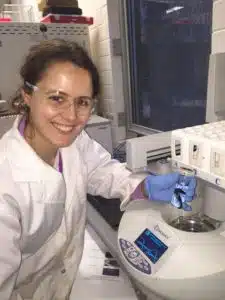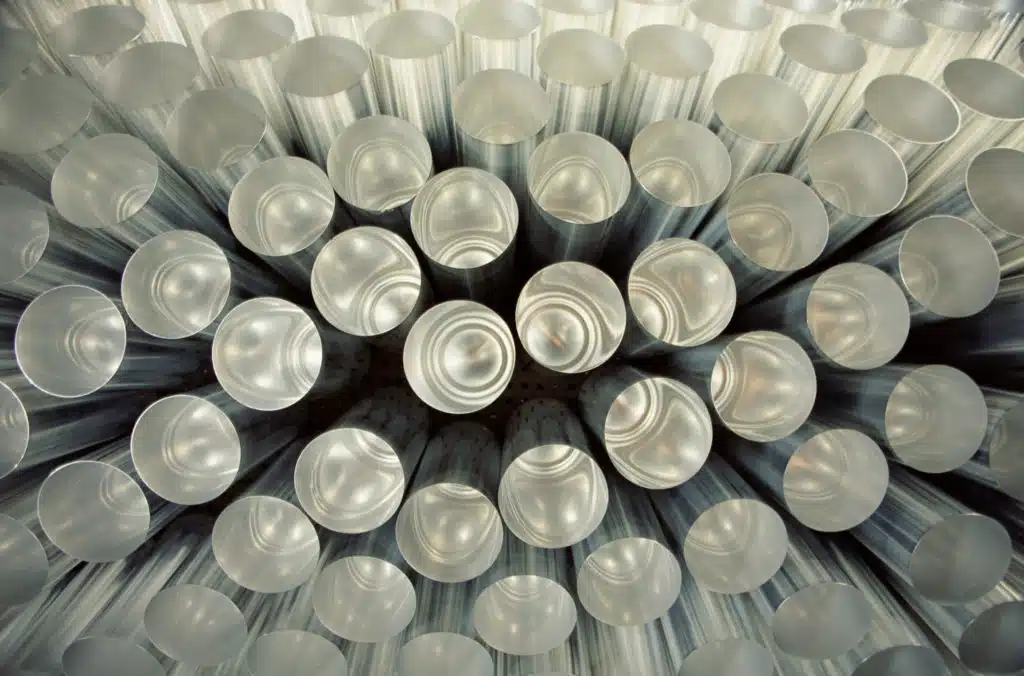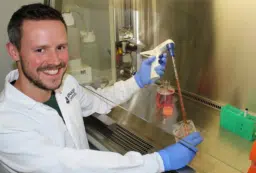Geelong scientists have discovered they can use microwave chemistry to make carbon fibre composite materials stronger and safer more quickly.
Carbon fibre composite materials are both light and strong, making them a great alternative to metal in a huge range of applications, from bikes and sports equipment to prosthetic limbs, planes and cars. They’re made up of carbon fibres that are set inside solid plastic.

Kathleen Beggs
But the materials have an Achilles heel: sometimes the fibres and plastic don’t stick well together and can come apart, making the material weak or causing it to crack.
By heating the carbon fibres in the microwave, Kathleen Beggs from the Institute for Frontier Materials at Deakin University, is able to attach chemical compounds to the carbon fibre that enable them to stick to the plastic better. This makes the composite material much stronger, therefore increasing the safety of the product.
This technique can be performed using conventional heating, like an oven, but microwaving is much more efficient – the reaction can take up to 24 hours using conventional heating, but just 30 minutes under microwave heating.
This is because microwave heating works from the inside out (conventional heating does the opposite, working from the outside in), which provides more evenly distributed heat, speeding up the reaction.
“The way we discovered this was interesting,” says Kathleen. “My background is in organic chemistry, where we use microwave heating a lot in organic synthesis – because it can dramatically reduce reaction times. So I thought: if microwave heating works so well for organic synthesis, why don’t we use it to attach chemical compounds to the carbon fibre? We attach these chemical compounds via a chemical reaction and I figured that the microwave heating might be able to speed up this chemical reaction.”
Kathleen’s hunch was right. Microwave heating is a much faster way to attach chemical compounds to carbon fibre, improving the carbon fibre’s performance in a composite material.
This technique will be useful in industries where products made from carbon fibre composite materials need to be produced quickly and on a large scale.
Contact: Kathleen Beggs, Institute for Frontier Materials, Deakin University, 0438 502 911, kmbeg@deakin.edu.au

Super light carbon fibre is used in bikes. Credit: istockphoto

Kathleen Beggs presenting at Fresh Science-credit Tom Rayner





 Fresh Science is on hold for 2022. We will be back in 2023.
Fresh Science is on hold for 2022. We will be back in 2023.